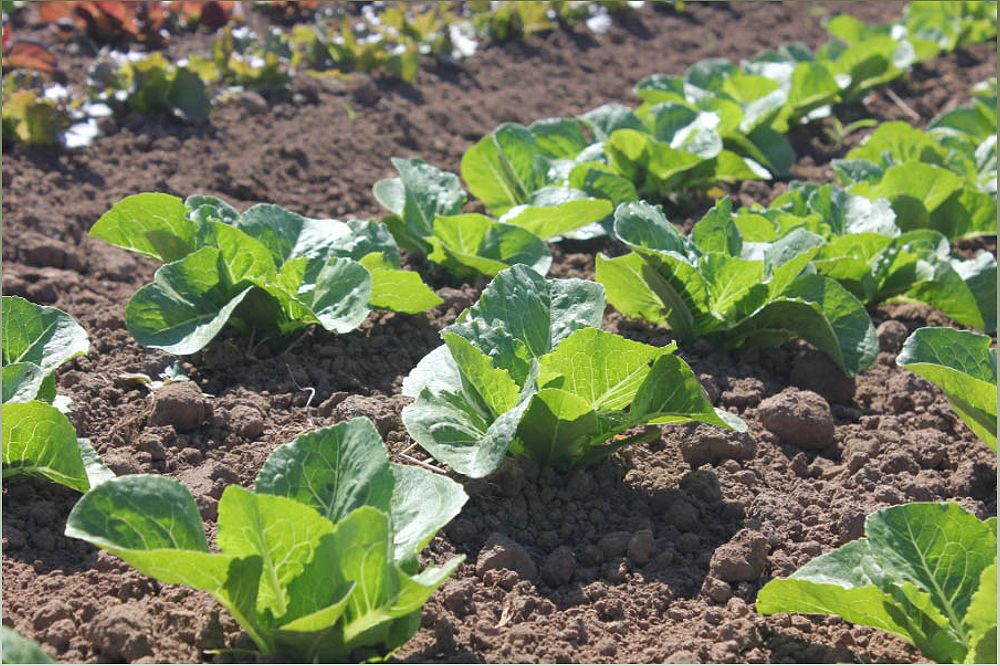Oregon has the potential to become a leader in organic agriculture, according to a state-funded report. With significant room for growth in production, manufacturing, and sales, the expansion of organic farming not only brings economic benefits but also enhances food security, resilience, and environmental sustainability.
Oregon’s Potential to Lead in Organic Agriculture
Oregon has the potential to become a leader in organic agriculture, according to a state-funded report. With significant room for growth in production, manufacturing, and sales, the expansion of organic farming not only brings economic benefits but also enhances food security, resilience, and environmental sustainability.

( Credit to: Oregonbusiness )
The report highlights that while only 10-16% of organic food consumed in Oregon is sourced from local organic farms, there is ample opportunity for increased production, manufacturing, and sales within the state. This growth not only benefits rural communities economically but also contributes to improved food security and resilience in the face of climate change.
Furthermore, the report emphasizes that organic agriculture aligns with initiatives aimed at mitigating the impacts of climate change. By promoting the cycling of on-farm resources, ecological balance, and biodiversity conservation, organic farming practices contribute to environmental sustainability. Organic farming also helps in reducing public and environmental health costs associated with conventional farming methods.
Oregon’s Organic Infrastructure and Benefits
Oregon’s infrastructure is well-equipped to support the expansion of the organic sector. The state has seen significant growth in organic food manufacturing, and there is an abundance of organic raw materials available for future expansion. Shifting more land and production from conventional to organic farming practices is not only smart but also necessary in the face of climate change.
Organic farming practices prioritize air and water quality preservation while conserving surrounding ecosystems. Unlike conventional agriculture, which often relies on pesticides, synthetic fertilizers, and sewage sludge, organic practices promote environmental sustainability. Additionally, organic agricultural practices result in lower greenhouse gas emissions, contributing positively to Oregon’s goal of reducing GHG emissions to 80% of 1990 levels by 2050. Furthermore, organic farmland can act as a carbon sink, further mitigating climate change effects.
The social justice aspect of organic agriculture is also highlighted in the report. By reducing pesticide use, organic farming protects farmworkers from acute pesticide poisoning and associated health risks. Moreover, increasing the availability of healthy organic fruits and vegetables can enhance food security for vulnerable communities in Oregon.
Barriers and Education for Organic Agriculture in Oregon
While the benefits of organic agriculture are clear, there are significant barriers to consider. Organic farming requires more labor-intensive practices, and farm labor expenses in Oregon have increased over the years. The recent adoption of House Bill 4002, enforcing overtime pay for agricultural workers, further narrows profit margins for farmers.
To promote the growth of organic agriculture in Oregon and support farmers in making the transition, education plays a crucial role. The Oregon Organic Coalition (OOC) plans to resume its initiatives, such as the Organic Grows a Better Oregon Advocacy Day and the OOC Excellence Awards, to provide education and support to farmers. The report serves as a launching point for further actions to promote organic agriculture in the state.
Oregon’s Path to Leading in Organic Agriculture
With its established organic infrastructure and potential for expansion, Oregon is well-positioned to lead in organic agriculture. By embracing organic farming practices, the state can not only boost its economy but also contribute to environmental sustainability, social justice, and improved food security for all Oregonians.
By shifting more land and production to organic farming, Oregon can enhance its contribution to mitigating climate change. Organic farming practices promote ecological balance, biodiversity conservation, and lower greenhouse gas emissions. Additionally, organic farmland can act as a carbon sink, further mitigating climate change effects.
Furthermore, organic agriculture benefits farmworkers by reducing their exposure to harmful pesticides. It also increases the availability of healthy organic food, enhancing food security for vulnerable communities in Oregon.
Overall, the state-funded report highlights the immense potential for Oregon to lead in organic agriculture. With the right support, education, and continued efforts, Oregon can further develop its organic sector and reap the economic, environmental, and social benefits that come with it.
